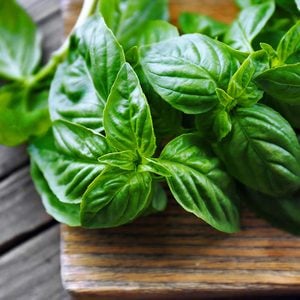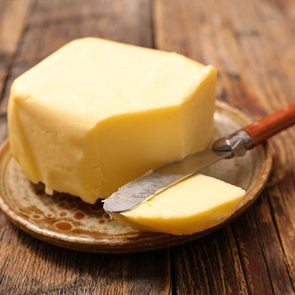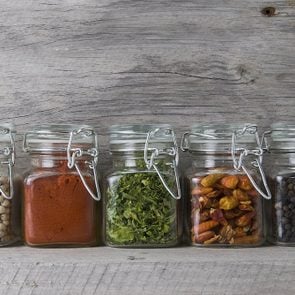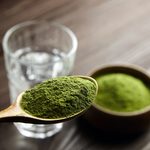Why Canadian Butter Isn’t as Soft as It Used To Be
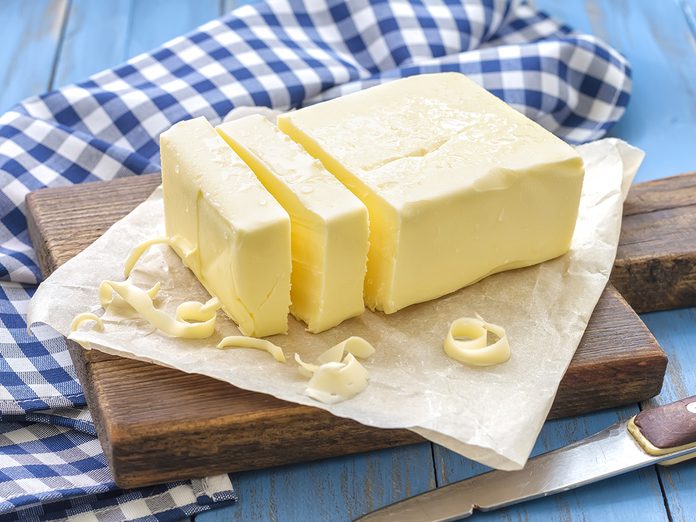
If you’ve noticed that your butter is harder than usual, you're not alone—and it’s all because of what they’ve been feeding cows.
It all started with a Tweet. In February 2021, writer Julie Van Rosendaal Tweeted: “Have you noticed [butter is] no longer soft at room temperature?” Hundreds of Canadians responded to with their own butter-related woes, leading to speculation that Canadian cows are being fed palm oil.
Here’s what you need to know about the ensuing controversy, which has been dubbed “Buttergate.”
Something is up with our butter supply, and I’m going to get to the bottom of it. Have you noticed it’s no longer soft at room temperature? Watery? Rubbery? pic.twitter.com/AblDzGiRQY
— Julie Van Rosendaal (@dinnerwithjulie) February 5, 2021
Why are some farmers feeding cows palm oil?
Since the pandemic, Canadians have been baking at unprecedented rates, leading to an increase in the demand for butter—which was up 12.4 per cent in 2020. While farmers have been feeding their cows palm oil-based energy supplements for decades now, the problem became more apparent over the summer of 2020, when the sudden spike in demand for butter led thousands of farms around the country to increase their use of palm oil-based supplements.
However, it doesn’t look like all butter has been affected. No one knows exactly which brands or products have undergone the most significant change in spreadability, but anecdotal evidence suggests organic butter and butter made from grass-fed cows are in the clear.
What is palm oil doing to my butter?
Basically, palm oil is a quick way to increase the proportion of saturated fat in milk, as opposed to unsaturated fat. The addition of palm oil inadvertently increases the melting point of butter, meaning your butter stays harder at higher temperatures. So, while you previously might’ve been able to get perfectly spreadable butter by leaving it out on your kitchen counter, butter made from cows fed with palm oil stays hard even at room temperature.
In an interview with the CBC, food researcher Sylvain Charlebois describes a “toast test” he recently performed: after buttering toast with both organic butter and regular butter, he found that the organic butter “melted very easily, was very easy to spread. It smelled like butter.” The regular butter, on the other hand, was difficult to spread, only melted a little bit, and didn’t smell like anything.
Should I be concerned about palm oil in my diet?
Palm oil is made from the fruit of the oil palm fruit, and it’s one of the most commonly used vegetable oils. Though palm oil’s negative health impacts are contested, a report from the World Health Organization linked palm oil intake to higher rates of death from heart disease and higher cholesterol levels. (Here are the healthiest cooking oils, according to nutritionists.)
What’s this I hear about palm oil being bad for the environment?
Palm oil is sourced from tropical rainforests, and conventional palm oil production leads to the uncontrolled clearing of these forests. This widespread deforestation also leads to climate change and means that many endangered animals will lose their habitats and are at risk of extinction.
What’s being done about this?
It’s no surprise that Canadians are concerned: taxpayers support the domestic dairy industry, so they expect a quality product. Plus, there’s an ethical concern over something as environmentally disastrous as palm oil being subsidized by Canadian taxes.
As Charlebois writes for CTV Montreal, “Dairy farmers have exclusive, government-sanctioned quotas, and Canadian taxpayers have given $1.75 billion to the industry to assure continued access to quality dairy products.”
For their part, The Dairy Farmers of Canada issued a statement that “all milk sold in Canada is nutritious and safe to consume and is subject to Canada’s rigorous health and safety standards.” The organization said it would, nevertheless, assemble a committee of dairy stakeholders (including consumers) to address the concerns. It has since issued a follow-up statement asking dairy farmers to consider alternatives to palm supplements while the committee completes its work.
Next, read up on palm oil’s damage to the environment.
